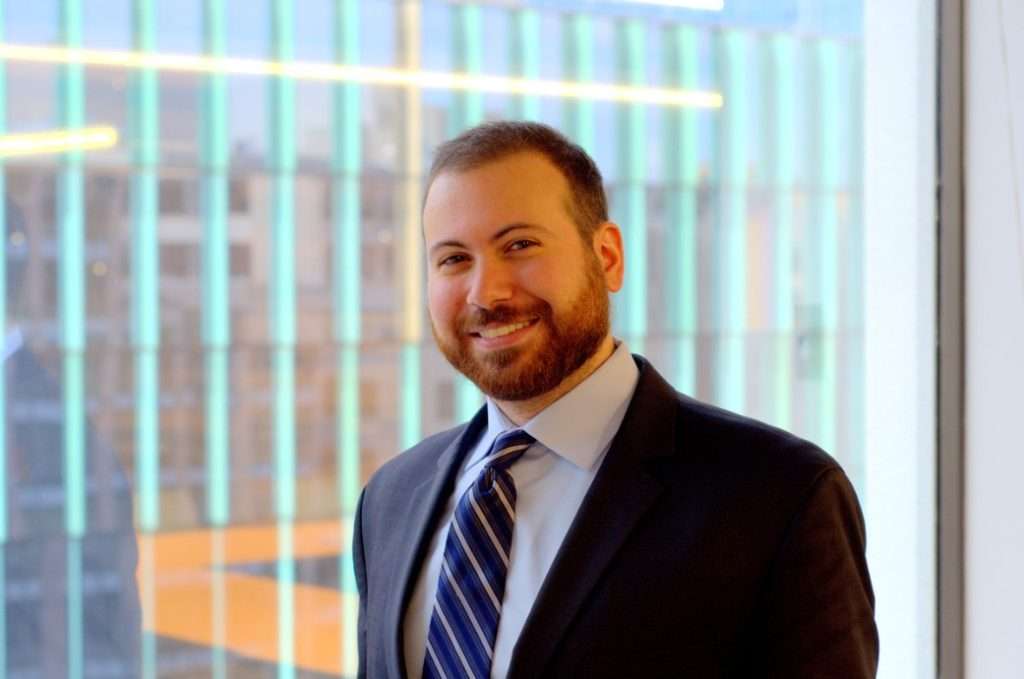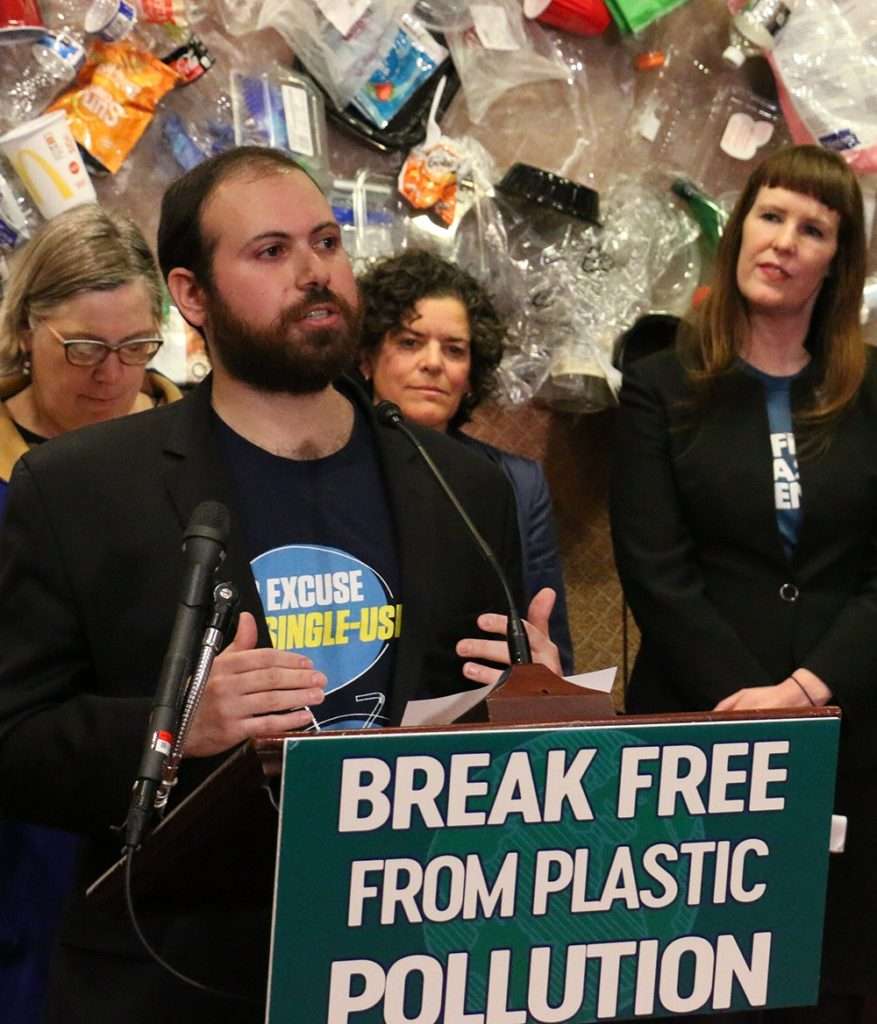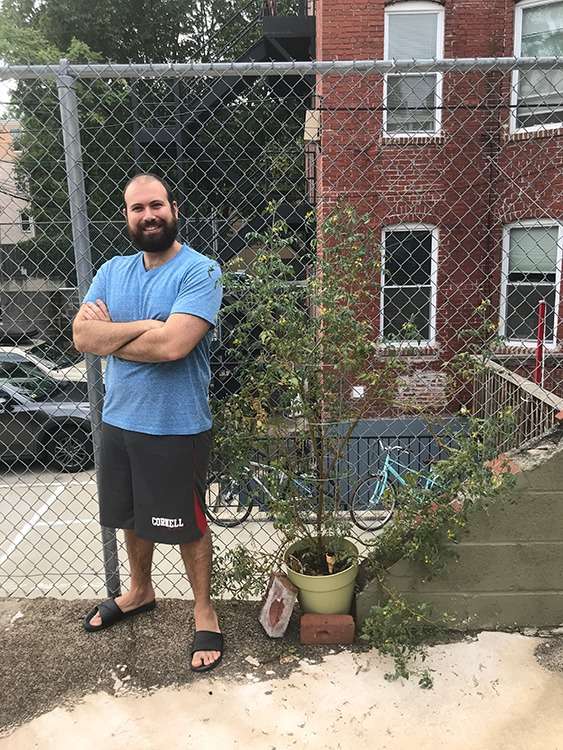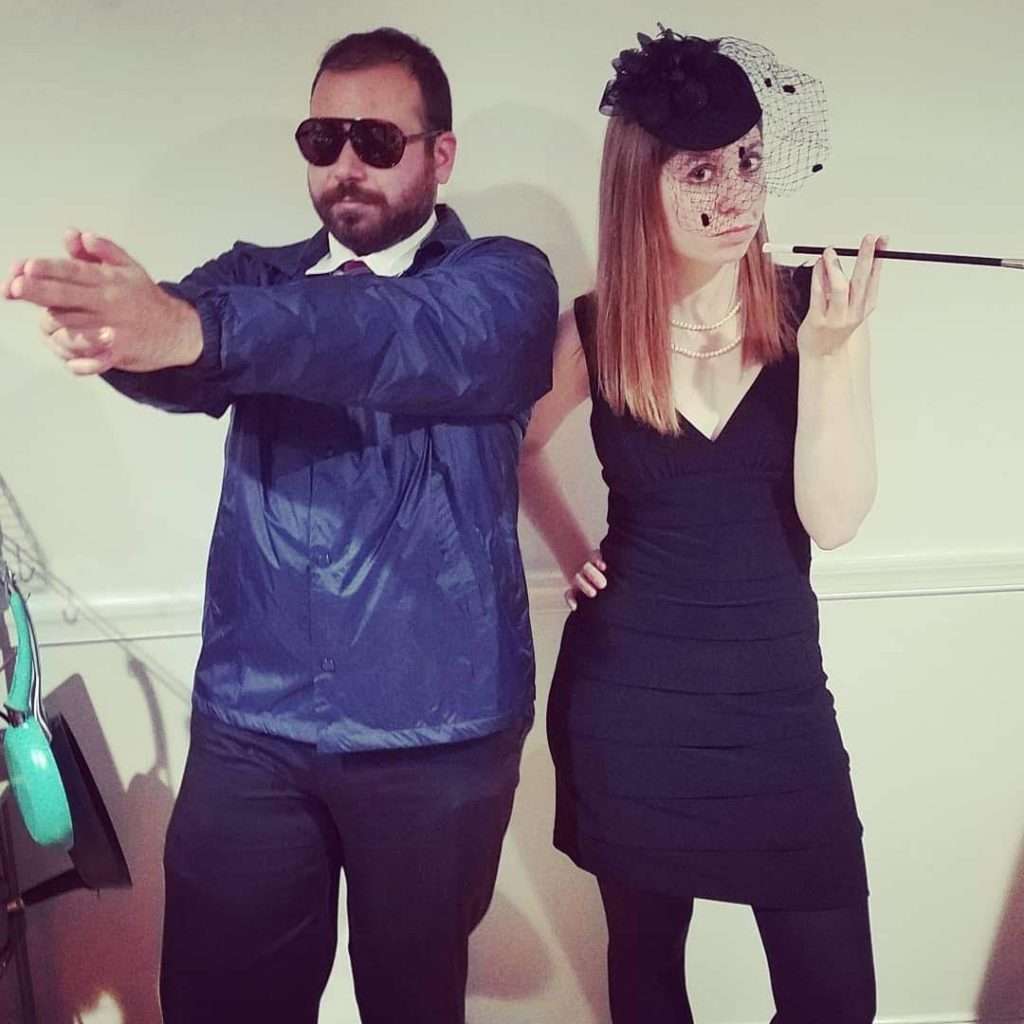
Here at the Center for International Environmental Law (CIEL), we know our strength comes from the people who make up our movement — from our staff, to our partners, to our steadfast supporters. Our “Meet Our Staff” series will introduce you to some of our amazing staff members, who work behind the scenes every day to defend the right to a healthy environment.
Steven Feit is an attorney in CIEL’s Climate and Energy Program, who joined the organization in 2015. We spoke with him about his favorite memories at CIEL, how you can make systemic change locally, and more.
Tell us about the work you do at CIEL.
Steven: I work on fossil fuels, broadly. This includes climate accountability work, through the form of litigation — tort suits against corporations, lawsuits against states, and more. I also oppose the expansion of fossil fuels, often through the Global Gas and Oil network, and I work on fighting the expansion of petrochemical production, as well as the overlap between legal and financial climate related risk. This often means thinking about investor fiduciary duties and pension funds, among other financial actors. Day-to-day, this means I tend to do a lot of writing — reports, briefing notes, and lots of emails.

What is one of your favorite memories from work?
S: One of the most exciting things happened in December of 2017. I got a call from a colleague in New York. She told me that the New York City Pension Fund was announcing it would divest from fossil fuels, and that New York City was launching lawsuits against the carbon majors. Having been involved with the Divest New York campaign, and seeing our fiduciary duty analysis plugging into that, as well as seeing our climate accountability research cited in the complaint, was a wonderful confluence of a lot of hard work and creative effort.
What changes have you seen in CIEL over the past five years?
S: The way the staff work together is at a whole other level from five years ago. I work very, very closely with several other staff members, and frequently with many more. There’s a lot of cross-programmatic action and a lot of cross-disciplinary work, in a way that is truly exciting. It’s not like things were completely siloed before, but now there’s a much greater flourishing of collective work.
Why do you think the work you do/CIEL does is important?
S: CIEL really does zoom out and think systematically. The work I do on financial risk connects directly to the work I do on human rights and climate change, which connects in turn to the work I do on plastic and oil and gas. And this means not just taking things from one domain and transplanting them somewhere else, but really making sure that we consider how interventions in one arena affect others, how strengthening law here helps another effort over there. With so much changing so rapidly these days, having the broad scope helps us stay focused on the why of the work, not just the what and the how.
What do you think is the biggest challenge facing the movement right now? Biggest opportunity?
S: I always say that, when it comes to climate work, I’m that certain we will win, but I’m not certain we will win fast enough. So, I think that the biggest issue is just time. We’re doing the work, we’re doing the work well, and we’re getting better at it all the time. But we don’t have infinite time.
In terms of opportunities: youth. We are seeing really the ascendance of young people, asserting their space in society, in politics, in the business world. This looks like everything from changes in approaches to diversity, to the rise of the YIMBYs, to the way in which we are reevaluating the very American concept of using a home to build wealth. Young people asserting themselves like this is, to me, the most exciting trend.

For someone who’s looking to make an impact for the environment, what do you think are the best ways to get involved?
S: One of the things we’re collectively relearning right now is what it means to be a part of a society, beyond our prescribed roles in certain spaces. There was this effort, especially in the latter half of the twentieth century, to focus on individual action for making change: don’t litter, buy a hybrid, bicycle to work. You now see much more discussion of thinking and working in terms of systems. That doesn’t mean, though, that the only systems worth engaging with are at the national or international level, and they’re not only those most high-profile. Changing systems includes changing your grocery store, changing your local school board. Start by looking around, see where you’re already interfacing with the world – the grocery store, homeowners’ association, school board – and push those systems to change.
What do you like to do in your free time?
S: I like to read. I’ve recently gotten into gardening, and even though my outdoor plants are dead I have some herbs and a mushroom log that I’m tending indoors. I aspire to pick up an instrument again.

What book are you reading right now?
S: I just finished the Broken Earth trilogy by N.K. Jemisin – it really is as good as everyone says. Now I’m working my way through Dune, which I can hopefully finish by the time the movie comes out in October.
Tell us something people would be surprised to learn about you!
S: I swam competitively for eleven years!
If your coworkers were to give you a superlative award (e.g., most likely to succeed, most likely to brighten your day), what would it be?
S: Most likely to be listening to something absolutely strange, but delightful.
Interviewed by Owen Torrey, Communications Intern
Originally posted on January 15, 2021
